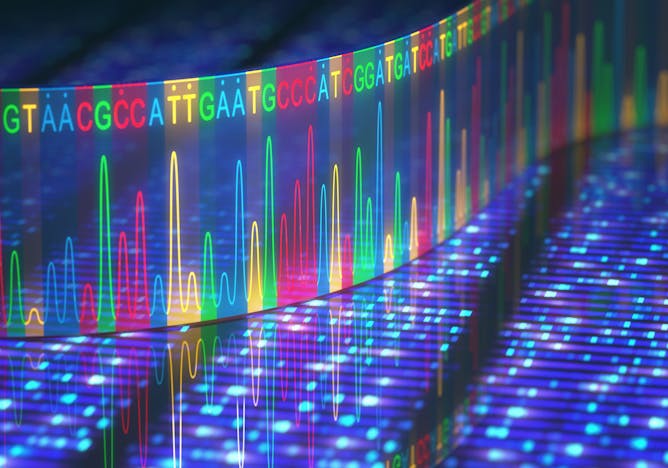|
Ever since 2003, when the NIH announced the completion of the Human Genome Project – the DNA-encoded instruction manual for the human body – I’ve been waiting for a future in which reading our DNA is a routine part of medicine. But in 2003 that wasn’t possible. The price tag of this first complete genome was $2.7 billion and took 13 years. Not a practical timescale or cost for medicine.
But today things are very different. The cost of sequencing an entire human genome has plummeted to just several thousand dollars, even less at hospitals, universities and large corporations. Today Charles Chiu, professor of laboratory science at the University of California, San Francisco, describes how he is using a superfast method called “metagenomic next-gen sequencing” to analyze the DNA from critically sick patients with
confusing symptoms to discover the cause of their illness and provide the best treatment.
Also today, explaining the Fed’s delicate dance on inflation, the psychology of the Quantified Self movement and enduring sexism in sports journalism.
|

Decoding all the DNA in a patient’s biological sample can reveal whether an infectious microbe is causing the disease.
ktsdesign/Shutterstock.com
Charles Chiu, University of California, San Francisco
Superfast DNA analysis is now being used to crack medical mysteries when physicians can't figure out whether an infectious microbe is causing the disease.
|
|
|
|
|
|
|
|
|
Health + Medicine
|
-
Abigail Johnson, University of Minnesota
You want to encourage the growth of good bacteria in your gut to improve health. But which foods should you eat to do that? It turns out that nutritional labels aren't much help figuring that out.
-
Leslie Burger, Mississippi State University
As humans encroach on wildlife habitats, it's only natural that wildlife come into yards and playgrounds. Here are some tips to peacefully coexist, or to keep critters away if you don't want that.
|
|
Most read on site
|
-
Treva B. Lindsey, The Ohio State University
Abortion has been a huge political issue in the US for the last 50 years. But the abortion debate is not new. It began at least a century before landmark abortions rights decision Roe v. Wade.
-
Liberty Vittert, Washington University in St Louis; Brendan Lind, Harvard Business School
Approval ratings are usually a good way to predict the winner of the next presidential election. But Trump's numbers fall far outside any historical trends.
-
Tristan Bridges, University of California, Santa Barbara; Mignon R. Moore, Barnard College
According to the General Social Survey, the percentage of men and women who identify as gay or lesbian has held firm. But the share of women who say they're bisexual has skyrocketed.
|
|